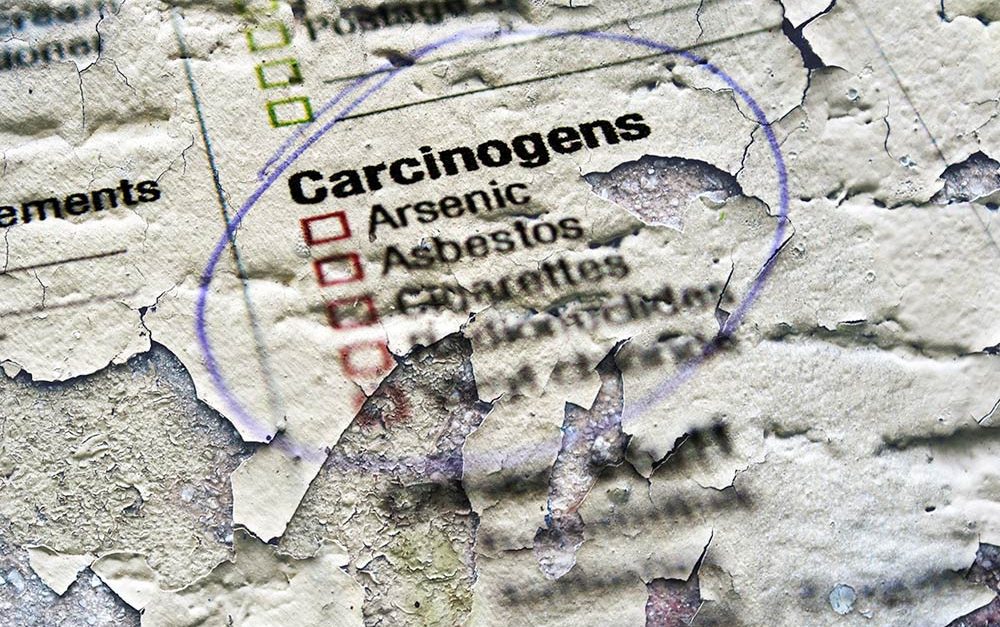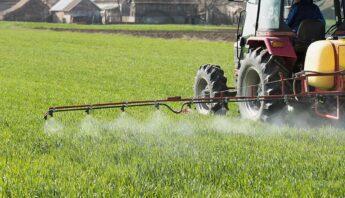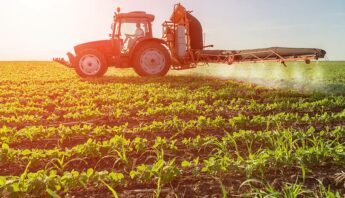The news that a prestigious panel of 17 independent experts has deemed glyphosate — the world’s most popular herbicide — to be “a probable human carcinogen” prompted the usual scoffing and stalling from Monsanto and others invested in agribusiness.
But this time, there might just be enough concern and momentum to stop inundating our fields and rural communities with this problematic chemical.
In March, the World Health Organization’s International Agency for Research on Cancer (IARC) reported that, after assessing the relevant peer-reviewed studies, it was adding glyphosate — the primary ingredient in Monsanto’s RoundUp — to its list of chemicals of concern as a “probable human carcinogen.” While the panel cautiously noted that direct links to some cancers are still inconclusive, the weedkiller has been linked to tumors in mice and rats, and there is evidence that glyphosate exposure damages human DNA.
Monsanto hit back immediately, accusing the IARC of ignoring other (industry-sponsored) research and sneering that, “IARC has classified numerous everyday items” as probable carcinogens. Still, the corporation took the classification seriously enough to demand — and get — a meeting with the IARC soon after this announcement.
RoundUp, RoundUp everywhere
Questions around glyphosate have hovered for years, given its widespread use (and thus widespread potential for exposure). The week after the IARC’s ruling, New Zealand’s University of Canterbury published findings that glyphosate and other popular herbicides can increase the ability of E. coli, Salmonella and other harmful bacteria to resist popular antibiotic medicines. Glyphosate residues have been found in foods that we eat, as shown by the UK’s monitoring program that detected glyphosate in starchy foods such as bread.
In her blog, my colleague Marcia Ishii-Eiteman, Ph.D. wrote:
“Exposure to this probable carcinogen is virtually unavoidable at this point. Since Monsanto introduced its RoundUp-Ready seeds engineered to be resistant to its top-selling herbicide 20 years ago, herbicide use in this country has skyrocketed. More than 500 million additional pounds — most of it RoundUp — have been applied since then.”
It really caught my attention when, despite direct industry pressure and “Eh, lots of things can cause cancer” articles in the press, the IARC came back last month and reiterated its earlier finding that glyphosate is a probable human carcinogen. That was enough for PAN International to add the weedkiller to our list of highly hazardous pesticides — chemicals that we believe should be replaced as soon as possible with safe, preferably non-chemical alternatives. Countries around the world, including France, the Netherlands, Brazil, Sri Lanka, Germany, Bermuda and Argentina, are sharply reducing or even banning glyphosate use.
Halt the pesticide treadmill
Meanwhile, here in the U.S., things are mostly business — Big Business — as usual. This year USDA and EPA approved Dow’s corn and soybean seeds that are genetically engineered to be resistant to glyphosate and 2,4-D, another worrisome herbicide. The more our farmers are pushed to use these seed-herbicide combinations, the more “superweeds” develop resistance to herbicides.
The response from Monsanto and the rest of the “Big 6” pesticide corporations? More of the same: buy new genetically engineered seeds that rely on new formulations of herbicides. In short, ramp up the pesticide treadmill that’s increased, not decreased, the amount of herbicides used over the past decade.
That being said, IARC’s findings come amidst a barrage of bad news for Monsanto & Co. As a result, a growing number of people are paying closer attention to agriculture, and taking action to minimize harmful chemicals in their lives.
Organizations around the world are endorsing PAN International’s call for a ban on highly hazardous pesticides. I’ll be sharing those signatures at the UN’s International Conference on Chemicals Management meeting next month. The U.S. will send official government representatives to that gathering, too.
I’m hoping that by then, both EPA and USDA have heard from thousands more concerned citizens, demanding better regulation of genetically engineered products, swift action on hazardous pesticides, and a plan to transition away from our intensive, world-wide use of glyphosate.








